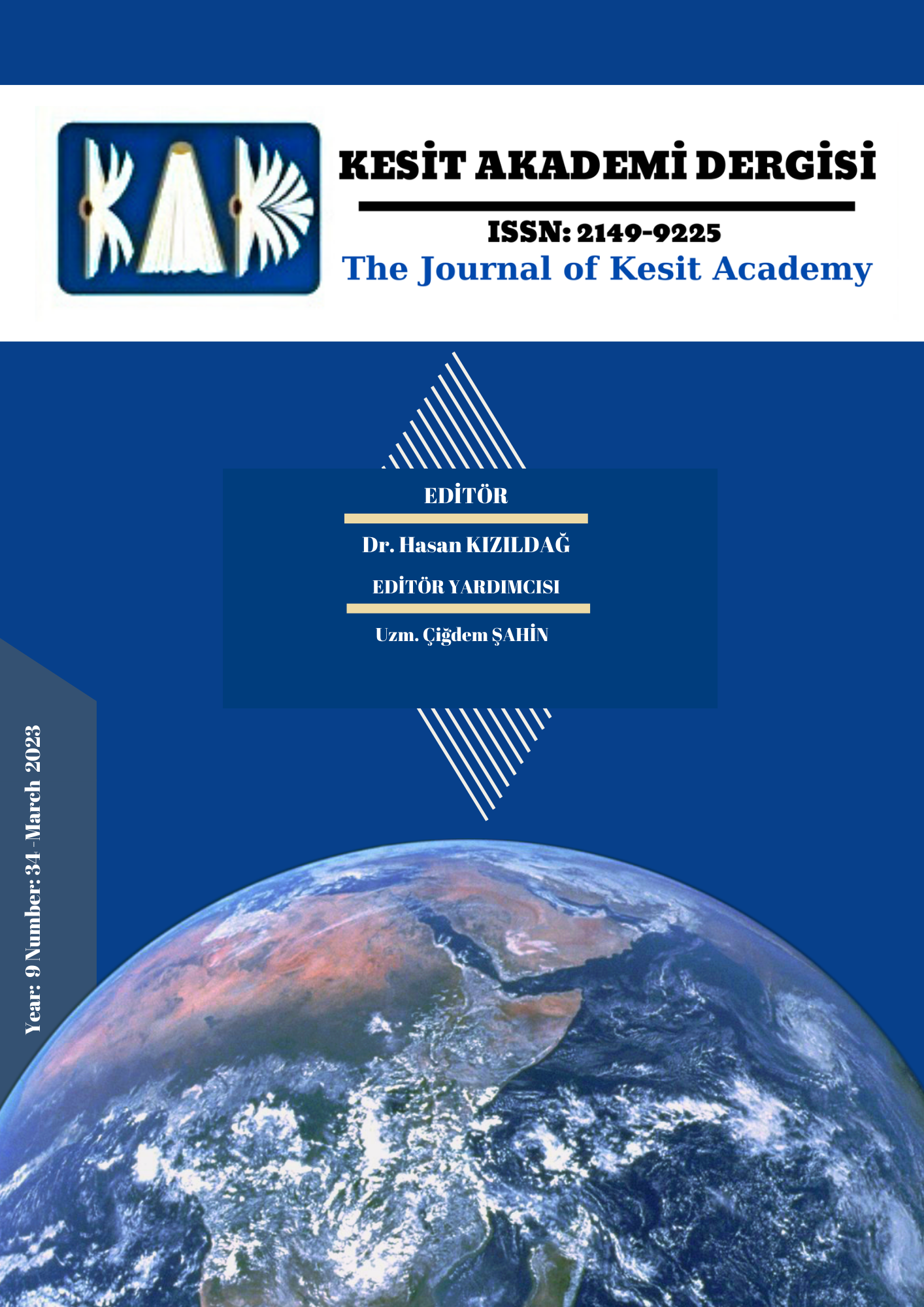Author :
Abstract
Bu çalışmada 8.sınıf rehber öğretmenlerinin rehberlik programı hakkındaki görüşleri incelenmiştir. Çalışma rehberlik programının kazanımları, içeriği, etkinlik örnekleri, programın değerlendirme öğesi ve güçlü ve zayıf yönleri bakımından incelenmiştir. Çalışma nitel araştırma yöntemlerinden durum deseni kullanılmıştır. Çalışmanın katılımcılarını 2021-2022 eğitim öğretim yılı itibariyle Malatya (Yeşilyurt-Battalgazi) merkez ilçelerinde görev yapan 8.sınıf rehber öğretmeni olan 12 öğretmen oluşturmaktadır. Araştırmada veriler, araştırmacı tarafından hazırlanan yarı yapılandırılmış görüşme formu aracılığıyla öğretmenlerle gerçekleştirilen görüşmeler sonucunda toplanmıştır. Araştırma verileri ses kaydı ve ses kaydı olmaması durumunda yazılı olarak kaydedilmiştir. Elde edilen ham veriler betimsel analizi yöntemi ile çözümlenmiştir. Araştırma sonucunda; rehberlik programlarının açık, anlaşılır ve günlük hayatta etkili olduğu, kariyer planlamasına önem verdiği, program içeriğinin uygulanmasında öğretmen becerisinin etkili olduğu programın değerlendirilmesinin aile ve öğrenciye yansıyan yanı olsa da genel anlamda soyut kaldığı, önemli olanın süreç olduğu, önleyici rehberlik anlamında olumlu olduğu ön plana çıkarken; engelleyici öğrenci davranışları, LGS’nin ön planda olması sebebiyle kağıt üstünde kalması, güncelleme yapılmaması, zaman yetersizliği ve sınıfların kalabalık olması sebebiyle yaşanan olumsuzluklar olduğu görülmüştür. Bu çalışmanın sonuçlarından hareketle şu önerilerde bulunulabilir; Rehberlik programında yer alan kazanımlar öğrencilerin gelişim dönemleri ve sınav vb. hususlar dikkate alınarak güncellemelere gidilmelidir. Program içeriği öğrenci gelişim alanlarına uygun olarak düzenlenebilir. Rehberlik etkinliklerinin değerlendirilmesinde performans değerlendirme ve alternatif değerlendirme yöntemleri kullanılabilir.
Keywords
Abstract
In this study, the opinions of 8th grade classroom counselling teachers about the guidance programme were examined. The programme was examined in terms of the gains of the guidance programme, its content, examples of activities, the evaluation element of the programme and its strengths and weaknesses. The study used case design from qualitative research methods. The participants of the study consisted of 12 teachers who were 8th grade classroom counselling teachers working in the central districts of Malatya (Yeşilyurt-Battalgazi) as of the 2021-2022 academic year. The data were collected through interviews with teachers using a semi-structured interview form prepared by the researcher. The study data were audio recorded and in the absence of audio recording, they were recorded in written form. The raw data obtained were analysed by descriptive analysis method. As a result of the study, it was found that the guidance programmes are clear, understandable and effective in daily life, that they give importance to career planning, that the teacher's skill is effective in the implementation of the programme content, that the evaluation of the programme is reflected on the family and the student, but that it remains abstract in general terms, that the important thing is the process, that it is positive in terms of preventive guidance; while it was seen that there are negativities experienced due to obstructive student behaviours, remaining on paper due to LGS being in the foreground, lack of updates, lack of time and crowded classrooms. Based on the results of this study, the following suggestions can be made: The acquisitions in the guidance programme should be updated by taking into account the developmental periods of students and exams etc. Programme content can be arranged in accordance with student development areas. Performance evaluation and alternative evaluation methods can be used in the evaluation of guidance activities.





